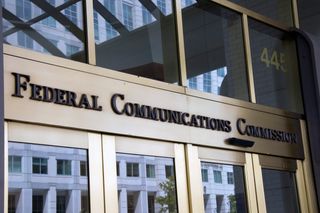FCC Auction Sprint Revives Bidding

If it was designed to spur more bidding in the 28 GHz auction—it was—the FCC's move to boost the number of rounds per day from four to six and cut the bidding time from an hour to a half hour has worked.
Since the change was made Monday morning (Jan. 7), the provisional winning bid (PWB) round-over-round increase has gone from $6,300 to six-figures over the past six rounds.
Following round 106, there were $691,846,550 in PWBs for 2,939 licenses. The FCC still has 133 licenses with no bids, but if they don't ever get a bid, the auction can still close since it has long ago topped its aggregate minimum for closing the auction, which was only about $40 million.
Related: Senate Confirms Starks, Carr to FCC
There were 21 new bids in round 106 and, altogether, about $1.5 million more has been bid since the FCC went to more and shorter rounds, with about as much bid in the past six rounds as in the previous couple dozen.
There are 40 qualified bidders competing for the 28 GHz spectrum, including Verizon, AT&T and T-Mobile, but none of the major cable operators eyeing wireless plays. Cox, though, is signed up for the 24 GHz auction that is to immediately follow the close of the 28 GHz auction.
The FCC concedes it has never pushed so much spectrum into the market at one time before, which could mean those lower prices, but the point is to get the spectrum out there "fast" given that wireless carriers have been talking up the need for speed and bandwidth for an internet of everything, 5G world.
Broadcasting & Cable Newsletter
The smarter way to stay on top of broadcasting and cable industry. Sign up below
Related: FCC's Pai Celebrates Sunset of Hill Effort to Nullify Net Neutrality Dereg
The 28 GHz licenses are relatively small (county sized), collectively reach only 25% of the population—so more rural areas—and are in a band with incumbent users to navigate, so the prices are not in the same ballpark as the broadcast incentive auction ($19 billion) or the AWS-3 auction (almost $45 billion) which both featured broad swaths of contiguous spectrum, in the case of the incentive auction after broadcasters were incentivized to move.
But the FCC's goal in the 28GHz auction is to get as much spectrum into the pipeline as possible for wireless broadband to help the U.S. win the race to next-gen 5G service and boost competition to wired carriers.
Contributing editor John Eggerton has been an editor and/or writer on media regulation, legislation and policy for over four decades, including covering the FCC, FTC, Congress, the major media trade associations, and the federal courts. In addition to Multichannel News and Broadcasting + Cable, his work has appeared in Radio World, TV Technology, TV Fax, This Week in Consumer Electronics, Variety and the Encyclopedia Britannica.

